#LM 2.8.9
Text
The bit where Jean Valjean starts to mentally reflect on how “wow! Convents are great! These nuns are aspirational” makes it very clear he skipped the convent digression.
101 notes
·
View notes
Text
Congratulations, Les Mis Letters readers, on finishing Volume 2: Cosette! 🎊
A wild journey from Waterloo, to the ship Orion, to Montfermil, to the Gorbeau House in Paris, and finally to the Petit Picpus convent and a wacky coffin heist.
On to Volume 3!
45 notes
·
View notes
Text

#my posts#les mis#les miserables#victor hugo#lascelles wraxall#wraxall translation#lynd ward#lm 2.8.9
27 notes
·
View notes
Photo
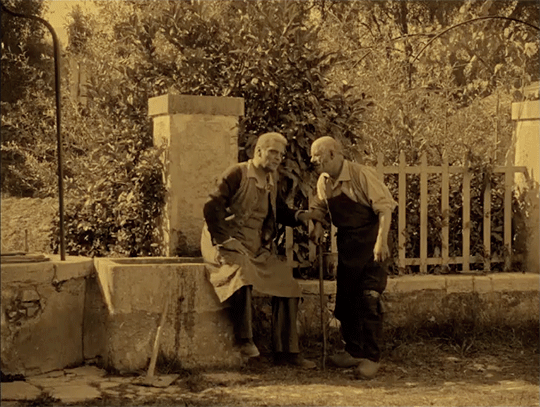
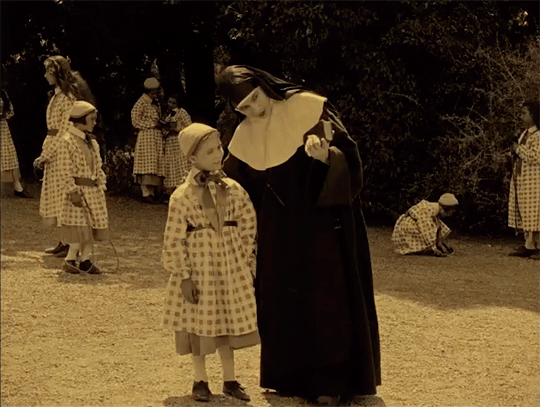
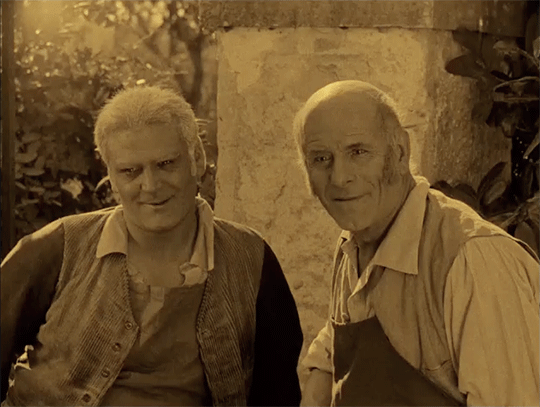
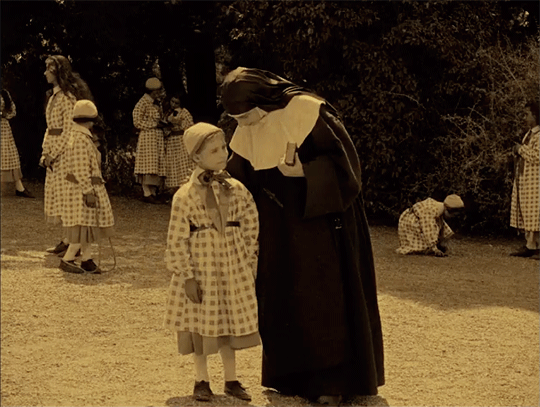
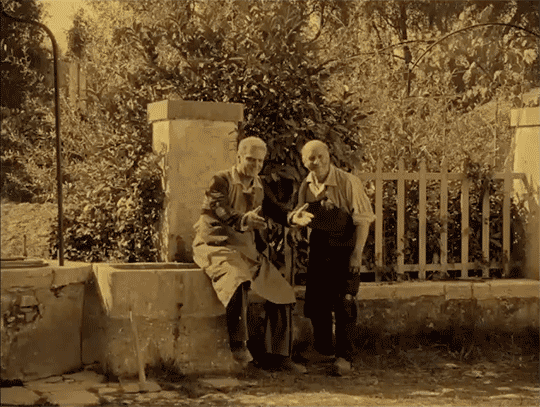
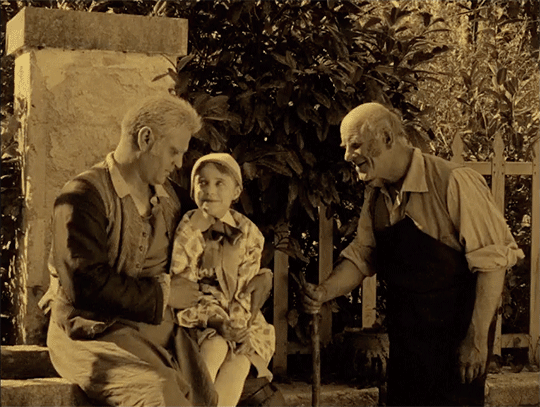

LES MIS LETTERS IN ADAPTATION - Cloistered, LM 2.8.9 (Les Miserables 1925)
Cosette had permission to pass an hour with him every day. As the sisters were melancholy and he was kind, the child made comparisons and adored him. At the appointed hour she flew to the hut. When she entered the lowly cabin, she filled it with paradise. Jean Valjean blossomed out and felt his happiness increase with the happiness which he afforded Cosette. The joy which we inspire has this charming property, that, far from growing meagre, like all reflections, it returns to us more radiant than ever. At recreation hours, Jean Valjean watched her running and playing in the distance, and he distinguished her laugh from that of the rest.
For Cosette laughed now.
Cosette’s face had even undergone a change, to a certain extent. The gloom had disappeared from it. A smile is the same as sunshine; it banishes winter from the human countenance.
#Les Mis#Les Miserables#Les Mis Letters#Les Miserables 1925#Les Mis 1925#LM 2.8.9#Cosette#Valjean#Fauchelevent#Cosette Fauchelevent#Jean Valjean#lesmisedit#lesmiserablesedit#lesmiserables1925edit#pureanonedits#silentfilmedit#filmedit#Gabriel Gabrio#Andree Rolane#This is probably the last time I shall gif her for this project :/#she's so good!!#The best little Cosette ever
51 notes
·
View notes
Text
It’s so sad to have exactly how much Cosette suffered reiterated here. Knowing that her clothes didn’t even become threadbare underscores how little time passed before she had to experience this kind of stress again; her childhood remains tumultuous, even now that she has Valjean to care for her. And it hurts to hear that she lost Catherine in all of this. The convent is against possessions in general, so she would have been separated from her as part of a broad policy, but there’s a big difference between nuns voluntarily giving up their material possessions and a child who’s only ever had one doll being made to do the same. I guess knowing that the convent would have taken Catherine away makes it slightly less sad that she lost her in their flight (since she would have lost her anyways), but it’s still devastating. The fact that she hints at her despair over this loss to Valjean highlights the depth of her trust in him, though. She’s too used to silence to say anything to most people, but she feels so safe around him that she can begin to express this, even if only indirectly.
Still, the convent is a good place for her right now. She smiles! And she even laughs! It offers her security and love (from Valjean), and that’s what she needs most to recover from those years of abuse.
For Valjean, the convent is much more mixed. He’s happy, too, but Hugo very blatantly compares the convent to a prison (and the same thoughts are running through Valjean’s head here). In some respects, the convent is definitely better. This sums it up well:
“On the one hand, miasms; on the other, an ineffable perfume. On the one hand, a moral pest, guarded from sight, penned up under the range of cannon, and literally devouring its plague-stricken victims; on the other, the chaste flame of all souls on the same hearth. There, darkness; here, the shadow; but a shadow filled with gleams of light, and of gleams full of radiance.”
The convent has a “hearth,” like a home, while the prison is diseased, metaphorically and literally. However, it’s still a place of darkness, even if that darkness is a shadow, and the bits of sky that Valjean sees are limited.
The way he thinks about these two structures also underscores his punishment-centric mindset. Since the galleys (theoretically - we know this isn’t true because his punishment followed him) delivered punishment in the form of imprisonment and labor in return for the expiation of “sins” (crimes), he applies the same logic to the convent, only to find that the nuns suffer to redeem everyone, not themselves. On the one hand, their focus on all people allows him to think of humanity as a whole, which can be good in broadening his perspective. Hugo speculates that he may have become prideful without this, and it’s true that Valjean is bad at thinking of other people; Fauchelevent himself pointed this out. That being said, he doesn’t think of others as a form of connection because of the convent. He only thinks of them in the abstract, encouraging him to continue in his pattern of helping others and forgetting them. He does have another social tie with Fauchelevent now, but the convent doesn’t seem to be addressing the actual issues with his mindset: an obsession with punishment and difficulties in forming real relationships.
#les mis letters#lm 2.8.9#cosette#jean valjean#fauchelevent#I also love that Jean Valjean is paying for Fauchelevent's snuff now#fauchelevent really won here#he got a new coworker#became famous#got to pay back Father Madeleine#and now has a wealthy man paying for his stuff#the coffin heist is one of the best things that's ever happened to him
15 notes
·
View notes
Text
Brickclub 2.8.8, “A Successful Interview,” and 2.8.9, “Cloistered”
I don’t really have anything to say about 2.8.8 that Bird didn’t say in his excellent writeup, so let’s move straight on to 2.8.9, “Cloistered.”
This is a long chapter and there’s just so much here. In the first sentence, we are told, “In the convent, Cosette continued to keep quiet.” She’s been trained to be quiet and small and had only just started to trust Valjean when he went away and left her again. But by the end of the chapter, Cosette is laughing, loudly enough and often enough for Valjean to pick out her laughter from the other girls’; and, “[t]hough still not pretty, Cosette, it must be said, was becoming delightful.”
Valjean came back for her. Her faith and trust were finally rewarded, and she gets to build on that. Cosette bounces back. Valjean… hoo boy.
He puts her mourning outfit aside in a suitcase full of camphor—which is to say, an embalming chemical. For Cosette, putting off mourning is a good thing. She starts laughing again. For Valjean—the clothing of a child that no longer fits (and mourning doesn’t fit beyond its term) was the first example given of the shades of the past making an invalid claim on the present. Cosette will dub the suitcase The Inseparable; Valjean will keep it always next to his bed with the key on his person—but his distance from Cosette herself starts growing, and will continue to grow.
When there are outside errands, the elder Fauchelevent runs them, and the nuns never notice that Valjean never leaves the convent cloister: “These four walls now constituted his world. Here, he saw enough of the sky for his own serenity and enough of Cosette to be happy.”
So, firstly, FOUR WALLS. As in FOUR, as in WALLS, and as in WAR BETWEEN—three levels on which this is not a good place and Valjean’s serenity and happiness do not mitigate that.
I do like the ambiguity of the nuns either being incapable of spying on Valjean, or too preoccupied with spying on each other to bother. It’s a nice transition into Valjean’s POV on the nuns, from the narrator’s.
And it’s a big shift. All through the heist sequence, the nuns have been really worldly—driven by ambition—right up through the end of 2.8.8 where they’re humblebragging about the heist in their confessions—and focused on worldly obstacles: public health regulations, bureaucracy, fines, and the physical challenges of moving and concealing a body. From Valjean’s POV, we don’t get any of that—he doesn’t perceive the reality and individualism of the nuns that Hugo has spent a very long digression building up. Some of his observations about the convent are probably true—I’ll come back to that—but he’s idealized it to a degree that Hugo has just spent a hundred pages telling us we shouldn’t.
Which, in conjunction with all the other things I’ve been noticing about the convent this time around, leaves me really not sure what to do with this:
God has his ways, after all. The convent contributed, like Cosette, to sustaining and completing in Jean Valjean the work of the bishop. It is certain that there is an aspect of virtue that leads to pride. There is a bridge there built by the devil. Jean Valjean was perhaps unwittingly quite close to that aspect and to that bridge when providence cast him into the Petit-Picpus convent. So long as he compared himself only with the bishop, he regarded himself as unworthy and remained humble, But for some time past he had been starting to compare himself with other men, and pride was germinating in him. Who knows? He might have ended up returning very slowly to hatred.
So, to start with. This is one of those paragraphs where there’s an awful lot that’s implied but not stated, and I am learning that Hugo is usually up to a lot of trickery when he does that. Parts of this paragraph make me want to read it as Hugo’s usual brand of irony or even sarcasm—that last line undercuts itself so many times I have a hard time reading it any other way.
And I have a very hard time seeing the pride Valjean has developed as a bad thing, or regarding himself as unworthy—a tendency that’s going to increase a hundredfold in the convent—as good. The constant repetition of fours and eights, Gothic death imagery, and all the comparisons to literal jails are driving home the ways that this is not a healthy place for Valjean.
But then there’s “sustaining and completing the work of the bishop.” There’s…definitely a reading to be made that the particular work of the bishop that’s being completed here is not Valjean’s salvation or his rescue from hate and despair, but the undermining of his sense of self-worth and righteous anger. I don’t know if that’s what we’re intended to take from this. I definitely think, this time through, that the bishop isn’t set up as perfect, that we are meant to critique his way of dealing with Valjean and the world—but tying him to this place and what it does to Valjean feels like a deeper acknowledgement of fault than I get the sense the book is ready to make.
After this comes the long, point-by-point comparison of the bagne and the convent, ending with
“And in these two places, so alike and so unalike, these two species of human being, so different from each other, were devoted to the same task: expiation.
Jean Valjean well understood the expiation of the former, personal expiation, expiation for oneself. But he did not understand that of the latter, that of these blameless creatures free from sin, and he wondered with a shudder: ‘Expiation of what? What expiation?’
A voice in his conscience replied: ’That most divine of human generosities, expiation for others.’
Here, all our own thinking is set aside. As narrator, we are simply putting ourselves in Jean Valjean’s position and conveying his impressions from his point of view.
Just as whenever Hugo insists that he’s digressing onto a completely irrelevant tangent, he’s making a central point, I’m pretty sure that right here he’s stressing that these are also the views of the book and of himself, Victor Hugo.
So we do get the bottom rungs of the ladder whose top is the barricade: another republic enclosed in four walls, expiating the sins of others, but doing it more effectively—a tollgate to the future. The nuns really are attempting a great good, even if everything about how they’re going about it is inside-out.
But Valjean is going to take exactly the wrong lessons from them:
Sometimes in the evening at twilight, a time when the garden was deserted, he could be seen kneeling in the middle of the path running alongside the chapel, in front of the window he had looked through on the night of his arrival, turned towards the spot where he knew the sister who was making reparation lay prostrate in prayer. And so he prayed, kneeling before the sister. It was as if he dared not kneel directly before God.
We’ve seen him kneel like this outside the bishop’s house; and we’ll see him prostrate himself in front of Cosette’s little mourning outfit. Throughout his life, we see him approach God through intermediaries because he feels unworthy of any other approach.
But I’m also feeling echoes here of Grantaire—someone else who recognizes the divine generosity of work that he doesn’t feel worthy or qualified to join in, and can only get as far as venerating the person doing the work.
Maybe that’s what we’re supposed to take from the promissory note from the Royal and Catholic army, pasted to the wall of Valjean’s room by an ex-Chouan gardener—a piece of scrip from the other side of the revolution, kept as a souvenir with no actual value, just as Grantaire will have an old assignat in a drawer.
6 notes
·
View notes
Text

#my posts#les mis#les miserables#victor hugo#lascelles wraxall#wraxall translation#lynd ward#lm 2.8.9#jean valjean
28 notes
·
View notes
Text
It’s good to know that Cosette “speedily became accustomed to the convent” – despite all its austerities, it was a far better environment than her previous life with the Thénardiers.
Javert is briefly back. We learn that he was keeping watch outside the convent walls “for more than a month”! And it’s funny that nuns, who were absolutely indifferent to their gardeners’ activity, are contrasted to Javert, because they do not possess “Javert’s glance”.
At first their new life in the convent is depicted as an idyll: Cosette seems to be rather happy, being able to visit Valjean every day for one hour, and he is happy as well, feeling safe, loving Cosette, rejuvenating the orchard, being grateful.
However, we learn that Valjean was on the verge of a breakdown just before entering the convent.: “He might have ended by returning very gradually to hatred.” Thanks to Cosette and the convent, it did not happen.
And the most disturbing part is the comparison between the galleys and the convent (his second place of captivity). Here, Hugo revisits themes explored in the convent digressions, revealing that they are basically the same place.
59 notes
·
View notes
